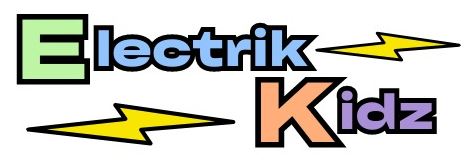
Building healthy relationships with other people is an integral part of growing up and developing social skills. As parents, it’s important to set a good example for our children and help them learn to be kind, considerate, and supportive of others. In this article, we explore different strategies you can use as a parent or guardian to help your child learn the importance of strong interpersonal ties and create lasting friendships.
Do you Want to Help Teach Kids the Important Skills for Healthy Relationships and Friendships?
Healthy relationships from an early age are essential for proper development in human life. By teaching them how to be good friend, they will have the basic understanding of empathy, respectfulness, and boundaries that is pivotal in all aspects of their lives.
We understand that it can be daunting to tackle so much in such a short time. So, we have put together some steps you can take to help your kid learn important lessons about developing positive relationships, tips, and strategies.
Keep reading and learn how to help your child be a good friend.
The Qualities of a Good friend and Why those qualities are Important for Healthy relationships?
Certain qualities make up a good friend. It is important to emphasize those traits when talking with your kid. These include:
- Trustworthiness.
- Dependability.
- Loyalty.
- Kindness.
- Respectfulness.
Emphasizing these qualities will help them recognize the importance of being a good friend and having positive relationships for the future. Those qualities are important for a healthy relationship because they will help foster an environment of mutual respect and understanding when they are present.
Activities to Help Teach Kids the Importance of Friendship

You can do many activities with your kids to help teach them about friendship. Here are some ideas:
- Role-playing: Have your child act out different scenarios with you to help them understand how different people interact.
- Talk about the consequences: Discuss what happens when friends don’t respect each other or act kindly towards each other. This will help your child recognize and understand why it is so important to be a good friend.
- Engage in activities together: Go for a walk, play a game, or go to the park. These activities will help your child practice social skills in an informal setting while having fun together.
- Discuss stories: Read stories together that feature strong friendships and talk about what makes them special and why they are important.
Five Strategies for Parents and Guardians to Teach Kids Healthy Relationships
As a parent, it is important to remember that you are your child’s first and most important role model. Your actions immensely impact their behavior and how they perceive the world around them.
Here are five strategies you can use to help your kid learn and develop healthy relationships:
1. Encourage Positive Communication
Teach children to express their feelings appropriately and discuss the different types of communication (verbal, non-verbal, written). You can do this by reading and discussing stories, role-playing scenarios, or conversing about their day.
2. Promote Respectful Listening
Remind kids to be respectful listeners when others speak, such as not interrupting and waiting for their turn to talk. Practicing what you preach and respectfully listening to your child would be best.
3. Role-Model Healthy Interactions
Be a role model for your kids by showing them how to interact with others respectfully. Demonstrate empathy, kindness, patience, and understanding in different situations. Ensure your behavior is consistent and you set an example for your child to follow.
4. Talk About Differences
Explain that friends can have different opinions or beliefs without impacting their friendship. Discussing this openly with your kid will help them understand that differences are not bad and can be beneficial in some cases.
5. Make Sure to Have Fun Together
Engage in activities together, such as going for walks, playing games, or doing simple crafts, allowing your child to practice social skills while having fun.
Tips for Kids: How to be a Good Friend
Teach your child how to be a good friend. Here are some tips that you can share with them:
- Be kind and show respect for other people’s feelings.
- Listen carefully to what others have to say without judging or interrupting.
- Be honest with friends and tell the truth even if it is difficult sometimes.
- Be generous with compliments and recognize the efforts of others.
- Apologize when you make mistakes or hurt someone’s feelings unintentionally.
- Forgive friends and understand that everyone makes mistakes sometimes.
Frequently Asked Questions About Teaching Kids How to be a Good Friend: Developing Healthy Relationships.
Q: Why being a good friend is important?
A: Being a good friend is important because it helps build trust, understanding, and respect for healthy relationships. It also teaches children how to communicate respectfully with other people and accept different views or beliefs.
Q: What are the benefits of teaching kids about healthy relationships?
A: Teaching kids about healthy relationships can help them understand the importance of communication, respect, and trust. This understanding will help them create strong bonds with others and foster meaningful friendships throughout childhood and beyond.
Conclusion
All in all, teaching your children how to form and develop healthy relationships is a very important task. Instilling them with values like kindness, respect, communication, and trustworthiness can empower them to create friendships that will bring joy and fulfillment. As a parent, guiding your children through this process can significantly affect how they approach relationships as they grow older.
Subscribe to our email newsletter to get the latest posts delivered right to your email.

Comments